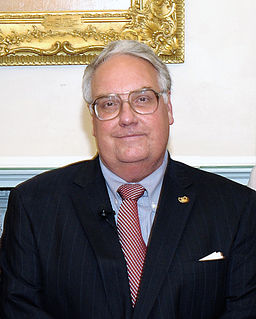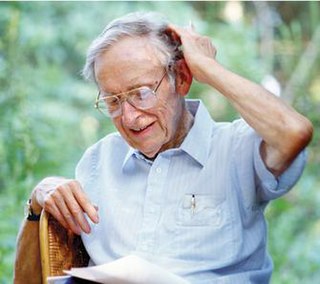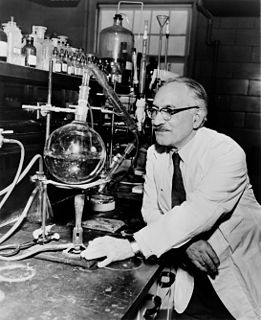A Quote by Howard Graham Buffett
Let me tell you about a place where technology won't work. When you walk onto a farm and are standing on soil, there is no technology that is going to take that soil and transform it into something that is five times more productive.
Related Quotes
The farmer and the farm, like "the environment," are looked upon, for example, as means to offset trade deficits. The farm is a place where we can externalize costs. The cost of pesticides to the farmer and the cost of the pesticides to the soil and groundwater are regarded similarly by the public: "a serious problem that something ought to be done about." But the problem is more fundamental than this glib statement would indicate, for soil pollution is an expense of production. So are pesticides and nitrates in our farm wells. So is the loss of farmers from the land.
It's as if the whole notion of growing soil is something only lunatics would think about. But why not grow soil? Does anything make more sense than growing soil? Isn't that more important than tractors, trucks, silos, barns, county fairs and country music? Of course it is. And yet to the lion's share of American farmers, the very notion of growing soil is just plain silly.
Technology for me is discover, learn, evolve and implement. It combines 3Ss- speed, simplicity and service. Technology is fast, technology is simple and technology is a brilliant way to serve people. It is also a great teacher. The more we learn about technology and the more we learn through technology, the better it is.
Now it’s either about technology that doesn’t work or about technology that’s used in bad ways. The anthology of the top twenty-five sci-fi stories in 1970 was, like, ‘Me and my friend the robot went for a walk on the moon,’ and in 2008 it was, like, ‘The galaxy is run by a fundamentalist Islamic confederacy, and there are people who are hunting planets and killing them for fun.’
If in the human economy, a squash in the field is worth more than a bushel of soil, that does not mean that food is more valuable than soil; it means simply that we do not know how to value the soil. In its complexity and its potential longevity, the soil exceeds our comprehension; we do not know how to place a just market value on it, and we will never learn how. Its value is inestimable; we must value it, beyond whatever price we put on it, by respecting it.
People always think of technology as something having silicon in it. But a pencil is technology. Any language is technology. Technology is a tool we use to accomplish a particular task and when one talks about appropriate technology in developing countries, appropriate may mean anything from fire to solar electricity.
Since chemical fertilizer burns out the soil organic matter, other farmers struggle with tilth, water retention, and basic soil nutrients. The soil gets harder and harder every year as the chemicals burn out the organic matter, which gives the soil its sponginess. One pound of organic matter holds four pounds of water. The best drought protection any farmer can acquire is more soil organic matter.
I have no opposition at all to technology. I think technology is a wonderful thing that has to be used thoughtfully, and we can't just assume that every bit of new technology improvesthe quality of life; it's really in how the technology is used. What I am very disturbed about is this trend of everything happening faster and faster and faster and there being more and more general noise in the world, and less and less time for quiet reflection on who we are, and where we're going.
Soil is not usually lost in slabs or heaps of magnificent tonnage. It is lost a little at a time over millions of acres by the careless acts of millions of people. It cannot be saved by heroic feats of gigantic technology, but only by millions of small acts and restraints, conditioned by small fidelities, skills, and desires. Soil loss is ultimately a cultural problem; it will be corrected only by cultural solutions.
































